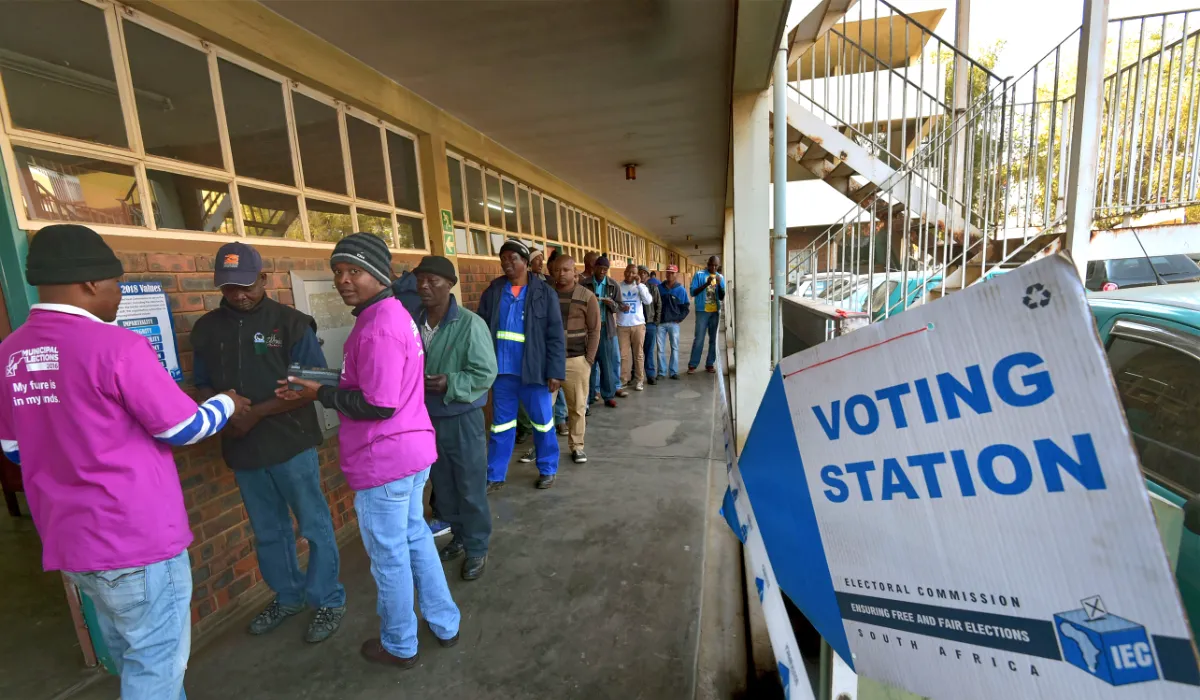South Africa is gearing up for its national & provincial elections (NPEs) on 29 May 2024. As the country celebrates 30 years of democracy, it is an opportune time to reflect on the resilience of the Independent Electoral Commission (IEC) of South Africa and related institutions, such as the Judiciary. The 2024 elections have already been, and will continue to be, the greatest litmus test for these institutions and their resilience since 1994. They are already facing significant political pressure and scrutiny in the wake of a number of election-related court cases and public utterances by politicians that the IEC may be compromised.
Some political parties, such as the newly formed MK Party, have questioned the IEC’s credibility, though the electoral body has defended itself, emphasising that it has always been transparent and that it has a rigorous results collation process and multidimensional oversight from all relevant stakeholders. In the same vein, other parties such as the Democratic Alliance (DA) requested Western countries such as the United States (US) to avail resources for independent domestic observers at the polls to ensure that the elections are free and fair.
The legal intrigues about this election included an objection to former President Zuma being a candidate on the parliamentary list on the grounds that he has a conviction of more than 12 months, which disqualifies him from becoming a member of parliament Constitutionally. The IEC upheld the objection; however, the MK Party appealed the decision of the IEC to the Electoral Court and the court upheld their appeal. Subsequently, the IEC petitioned the Constitutional Court which then ruled that Jacob Zuma’s conviction disqualifies him from being a candidate in the parliamentary elections.
[…]it appears that in spite of such legal challenges facing the IEC – the institution has remained resilient and enhanced South Africa’s constitutional democracy.
Tweet
Another legal dispute that the IEC had to face was the Labour Party’s appeal to the Constitutional Court for the IEC to review the election timetable. This came after the Labour Party and other smaller parties failed to meet the IEC’s deadline to submit all the required documents to enable it to participate in the elections. The Constitutional Court however, upheld the IEC’s election timetable. In this regard, it appears that in spite of such legal challenges facing the IEC – the institution has remained resilient and enhanced South Africa’s constitutional democracy.
The Judiciary has also demonstrated its impartiality in dealing with court cases in relations to electoral matters of disputes. For instance, the ANC took the decision to legally challenge the existence of the MK Party on two fronts. First, at the Electoral Court seeking the court to declare the registration of MK Party as a political party to be unlawful and invalid, furthermore to the court to review and a set aside the decision made by the Deputy Chief Electoral Officer (the DCEO) on the 7 September 2023 relating to the registration of the MK Party. However, the court found that there was nothing unlawful in the way the DCEO dealt with MK Party’s application for registration, as all the requirements for the registration of MK Party were met. The decision by the IEC to approach the registration of the MK Party in a holistic manner, including the court’s impartiality in dealing with this case, serves as an indication that these state institutions are showing resilience in terms of conducting their duties impartially according to the country’s constitution.
During the campaign period, the negative utterances towards democratic institutions such as the IEC and the Judiciary did not deter these institutions from taking unpopular decisions.
Tweet
Second, the African National Congress (ANC) approached the KwaZulu-Natal (KZN) High Court in Durban on 27 March 2024 to challenge the MK Party’s use of a name and logo that resembles that of the ANC’s military wing during the armed struggle against apartheid – the MK. However, the KZN High Court dismissed the ANC’s application on the basis that the ANC has not registered MK as an ANC name or logo. During the campaign period, the negative utterances towards democratic institutions such as the IEC and the Judiciary did not deter these institutions from taking unpopular decisions.
As it has become a norm, political parties signed an Electoral Code of Conduct aimed at promoting conditions that are conducive to free and fair elections. The IEC had further appealed to the political parties and independent candidates to adhere to this Code.
While institutions such as the IEC and the Judiciary have been tested during this election, so far it appears that they have applied and interpreted the country’s laws fairly and impartially. The May 2024 elections have indeed tested the resilience of South Africa’s institutions, and there would be many lessons to draw from these experiences in terms of the future conduct of elections as the country continues to consolidate its 30-year democracy.
Boikanyo Nkwatle is a Research Intern at the African Centre for the Constructive Resolution of Disputes (ACCORD) and Collin Olebogeng Mongale is a PhD candidate in Social Sciences with Political Studies and a Temporary Lecturer in the Department of Political Studies and International Relations at the North-West University (Potchefstroom).



